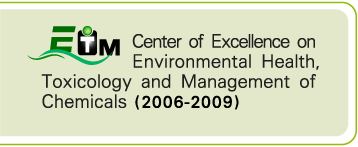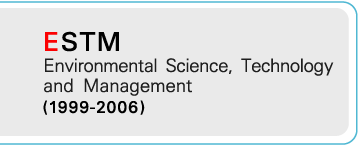| This research aimed to build the prototype pyrolysis equipment for recycling of plastic wastes to liquid fuels including optimum temperature, time and chemical composition of pyrolysis process. Experimental research was designed to be fractional factorial design (4×4) for two variables including temperatures of 350, 400, 450, 500 oC and four types of plastic (High density polyethylene plastic bag: HDPE, Low density Polyethylene plastic bag: LDPE, High density polyethylene plastic bottle: HDPE, Poly Ethylene Terephthalate plastic bottle: PET). Each experimental condition was replication three times according to pyrolysis temperature conditions and types of plastic. Total samples were 64 samples under the condition of heating rate of 20 oC/min to reach the pyrolysis temperature and maintained the temperature for 30 minutes. The results found that PET plastic bottle could not yield the liquid and solid product for all pyrolysis temperature. For pyrolysis temperature at 350 and 400 oC, HDPE plastic bag, LDPE plastic bag and HDPE plastic bottle could not yield the liquid and solid product. However, the optimum pyrolysis temperature at 450 oC of HDPE plastic bag, LDPE plastic bag and HDPE plastic bottle obtained maximum liquid product. In case of increased pyrolysis temperature form 450 oC to 500 oC, liquid and solid products decreased. The liquid products form plastic bags and bottles pyrolysis were analyzed by gas chromatography with mass spectrometry (GC-MS) to study chemical components. The research indicated that chemical components of HDPE plastic bag, LDPE plastic bag and HDPE plastic bottle were Toluene, 1-octene, Octane, Ethylbenzene, p-xylene, Nonane, 1-decene, 1-undecene, etc. Furthermore, the increased pyrolysis temperature form 450 oC to 500 oC found that the percent of weight of most of the chemical components were decreased but the percent of weight of toluene, ethylbenzene and p-xylene increased. Consequently, the prototype pyrolysis equipment could recycling from plastic wastes to liquid fuels. These liquid products must be fractionally distilled to distinguish the useful chemical products and improve the chemical quality suitable for further use.
แหล่งข้อมูล:
|
 Center of Excellence on Environmental Health and Toxicology (EHT)
Center of Excellence on Environmental Health and Toxicology (EHT)










